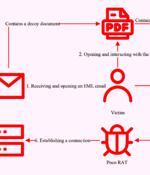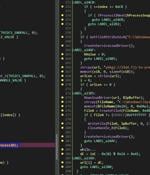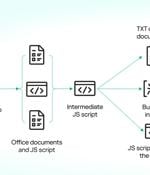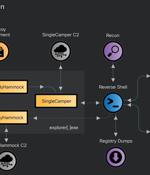Security News

The threat actor known as Blind Eagle has been linked to a series of ongoing campaigns targeting Colombian institutions and government entities since November 2024. "The monitored campaigns...

The threat actor known as Dark Caracal has been attributed to a campaign that deployed a remote access trojan called Poco RAT in attacks targeting Spanish-speaking targets in Latin America in...

A large-scale malware campaign has been found leveraging a vulnerable Windows driver associated with Adlice's product suite to sidestep detection efforts and deliver the Gh0st RAT malware. "To...

Threat actors have observed the increasingly common ClickFix technique to deliver a remote access trojan named NetSupport RAT since early January 2025. NetSupport RAT, typically propagated via...

Cybersecurity researchers have shed light on a new remote access trojan called NonEuclid that allows bad actors to remotely control compromised Windows systems. "The NonEuclid remote access trojan...

Cybersecurity researchers have discovered a malicious package on the npm package registry that masquerades as a library for detecting vulnerabilities in Ethereum smart contracts but, in reality,...

A newly discovered malware campaign has been found to target private users, retailers, and service businesses mainly located in Russia to deliver NetSupport RAT and BurnsRAT. The campaign, dubbed...

A newly patched security flaw impacting Windows NT LAN Manager (NTLM) was exploited as a zero-day by a suspected Russia-linked actor as part of cyber attacks targeting Ukraine. The vulnerability...

Cybersecurity researchers have discovered a new phishing campaign that spreads a new fileless variant of known commercial malware called Remcos RAT. Remcos RAT "provides purchases with a wide...

The Russian threat actor known as RomCom has been linked to a new wave of cyber attacks aimed at Ukrainian government agencies and unknown Polish entities since at least late 2023. The intrusions...